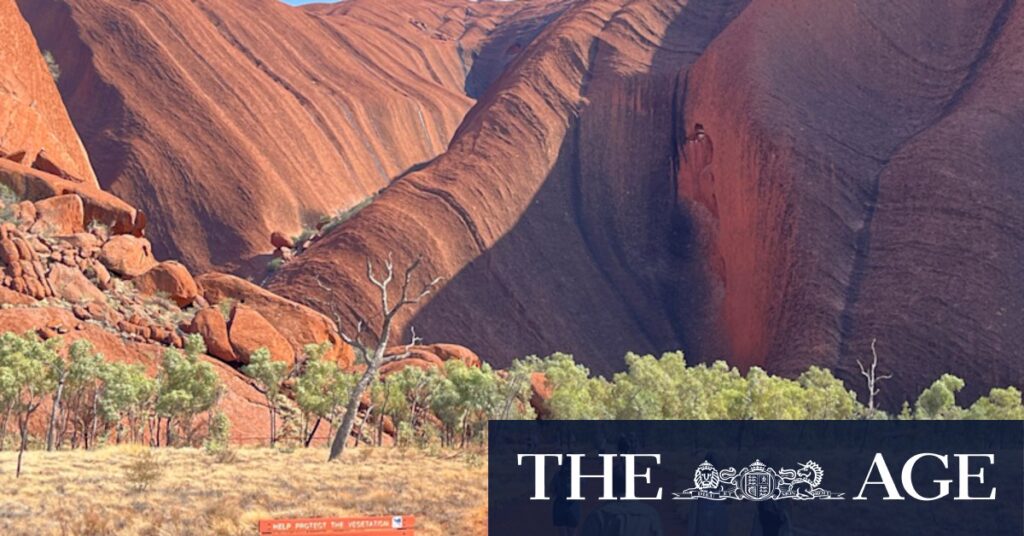
Anthony Albanese has praised the generosity of the traditional owners of Uluru during the Indigenous Voice to Parliament campaign as something that “stays in my heart as much as this rock is the heart of this continent.” In the shadow of the iconic Northern Territory landmark, the Prime Minister reflected on the failed referendum vote on Saturday while commemorating the 40-year anniversary of the return of Uluru-Kata Tjuta National Park to its traditional owners.
Albanese remarked on accepting the outcome of the October 2023 referendum, in which a majority voted against the proposal for constitutional recognition of Aboriginal and Torres Strait Islander people, even though it was not what he wanted or voted for. However, he emphasized his treasured memories from his time in the red centre during the campaign for a Yes vote.
“I will be forever grateful for the generosity of the traditional owners, in particular the leaders, the women who did a dance and song to show respect to the Prime Minister of Australia,” he told reporters at Uluru on Saturday. “It’s something I’ll never forget that stays in my heart as much as this rock is the heart of this continent.”
Reflecting on the Historical Handback
Speaking in front of the sacred First Nations site, Albanese noted that the handback to the Anangu in 1985 was a milestone for Aboriginal land rights and a powerful moment in the nation’s history. The national park, more than 300 kilometers south-west of Alice Springs, includes the landmarks formerly known as Ayers Rock and The Olgas. It has become one of Australia’s most popular tourist destinations and is visited by millions of people each year.
“After decades of exclusion, the Anangu’s rightful relationship with this place was finally recognized, and the Anangu responded by choosing to share it with all of us. Tourists flock to it, rangers care for it. All Australians are welcome here,” he said.
The Significance of the Handback
The Hawke Labor government returned the title deeds to the Anangu following decades of campaigning for their rights to be recognized, which Minister for Indigenous Australians Malarndirri McCarthy said laid the foundation for other landmark returns across the country.
“It … continues to shape how governments and communities work together to honor First Nations people and their custodianship of land,” she said.
The celebrations at the UNESCO World Heritage Site included a sunrise viewing at Uluru, traditional dance, a marketplace showcasing Anangu arts and crafts, and a concert featuring local Indigenous performers. On Sunday, Governor-General Sam Mostyn will unveil a plaque to commemorate the anniversary.
Looking to the Future
Tapaya Edwards, Anangu chair of the Uluru-Kata Tjuta board of management, emphasized the importance of the national park as a place where his community’s traditional law and culture could be kept strong for future generations.
“There is still much to be done, and we look forward to seeing our young people carry this flame forward as they learn Anangu traditional knowledge and Western knowledge to care for Country,” Edwards said in a statement.
The Anangu signed a 99-year lease to jointly manage the national park with the Commonwealth, through the director of national parks when the title deeds were handed back in 1985. Environment and Water Minister Murray Watt highlighted the handback as an historic moment of justice and celebrated the ongoing collaboration between the traditional owners and government.
“Joint management with the Commonwealth ensures Anangu have a lead role in the protection of the enormous environmental and cultural values of this significant national park,” he said.
The announcement comes as a reminder of the enduring significance of the Uluru handback, not only as a historical event but as a continuing journey towards reconciliation and recognition of Aboriginal land rights in Australia.







